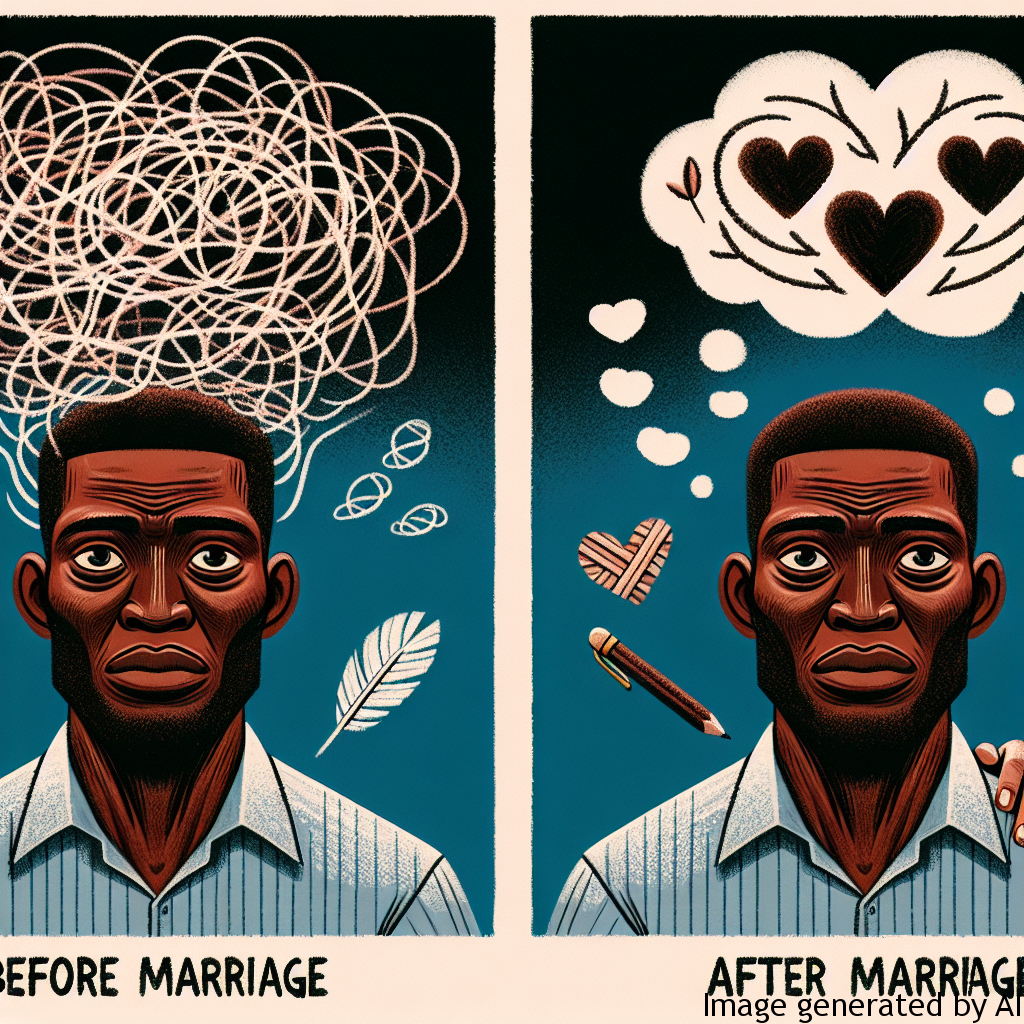Introduction
Marriage has been found to be associated with numerous health benefits, including physical and mental wellbeing. Men, in particular, have been found to benefit greatly from marital stability. However, while marriage brings along many benefits, it is also interconnected with gender expectations and societal norms, which, at times, may exert pressure and potentially affect men’s mental health negatively.
Gender Expectations And Their Impact on Men’s Mental Health
The Nature of Gender Expectations
In many societies, men often find themselves trapped in traditional gender roles, which expect them to exhibit traits such as emotional stoicism, strength, dominance, and the capacity to provide for their families. These stereotypes may place extra psychological pressure on men, affecting their mental health status, specifically in the context of marriage.
The Impact of Gender Expectations on Men’s Mental Health
Although marriage has been deemed a protective factor for mental health, the stress linked with the institution´s expectations can have adverse effects. Men dealing with demands and pressures to maintain a financial status, fear of inadequacy or failure, might be engrossed in stress, anxiety, and gradually even depression. Additionally, men are often expected to mask their feelings, this suppression of emotions could lead to increased susceptibility to mental health disorders, such as depression and anxiety.
Examples Of How Gender Roles Can Impact Men’s Life
The gender role of the “provider” often puts men under immense financial pressure, covering all the expenses single-handedly, which can lead to stress, anxiety, and psychological disturbance. Men possibly hesitate to seek help due to the societal stigma of expressing emotional vulnerabilities, exacerbating their mental health crisis instead of resolving it. Traditional masculinity norms might inhibit an open discussion about mental health problems, hindering the path to recovery for men. Men are more likely to suppress their identity and interests too to conform with societal expectations, which can further affect their mental health and overall happiness.
Tips for Improving Mental Health With Respect to Gender Roles
The first step towards improvement is acknowledging the issue and breaking down the barriers of gender stereotypes. Society should encourage men to express their feelings freely without any fear of judgement. While maintaining financial security is essential, the responsibility should not lie solely with men, fostering a stable and more balanced domestic environment. Therapy and counseling can play a pivotal role in addressing mental health issues among married men, improving their emotional wellbeing. Promotion of mental health literacy, particularly among men, is crucial in making them aware of mental health services, fostering help-seeking behaviors and normalizing discussions regarding mental health in men.
Conclusion
Marriage’s impact on men’s mental health is multifaceted. While marriage undoubtedly offers a plethora of benefits, upholding stringent gender roles and expectations can strain men’s mental health. Cultivating an environment that fosters understanding, shared responsibilities, and open communication is vital for maintaining the positive aspects of marriage while alleviating the potential negatives. In an era driven by progressive intellect and equality, continuous efforts must be made to eliminate the burden of gender stereotypes, opening avenues for men to experience both a successful marriage and sound mental health.

